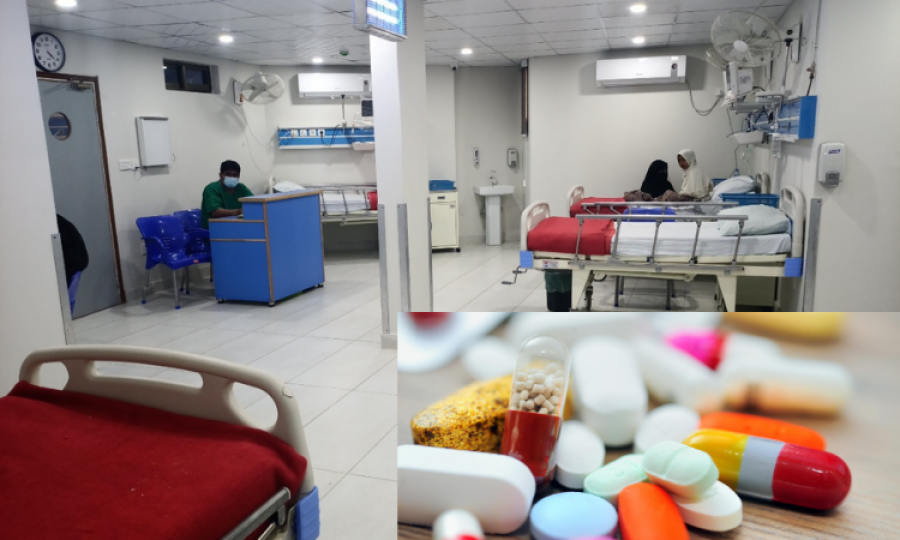Sindh hospitals in deep crisis due to shortage of life-saving medicines

KARACHI: Sindh Health Department has failed to supply life-saving medicines to public sector hospitals across the Sindh province despite the lapse of almost five months of the fiscal year.
The provincial government-run health facilities have been facing an acute shortage of life-saving drugs and disposal of surgical items for several months due to the sheer negligence of authorities at Sindh health department.
The patients in Sindh’s hospitals, including Dr Ruth Pfau Civil Hospital Karachi (CHK), Jinnah Postgraduate Medical Centre (JPMC), Sindh Government Lyari General Hospital, Sindh Government Hospital Liaquatabad, National Institute of Child Health (NICH) and others, are often asked by doctors to purchase medicines from their own pocket.
Sources at Sindh health department told that the procurement process of life-saving drugs, surgical and disposable items, X-rays films, chemicals, and allied items through a centralized system of drug procurement is in the final phase. The supply of drugs to hospitals is likely to resume in a month.
The hospitals of Hyderabad, Larkana, Sukkur, Mirpurkhas, Shaheed Benazirabad and other cities are also facing shortages of life-saving drugs and other items. Many crucial medicines for patients, who are suffering from chronic diseases, are also not available in the majority of government sector hospitals.
The lengthy and complicated procurement procedures have put the lives of many poor patients in danger across the Sindh province as the supply of medicines to public sector hospitals has not started yet despite the lengthy passage of time, passed.
Currently, almost all major government hospitals of Sindh are facing acute shortage of life-saving drugs and surgical items.
An official at Dr Ruth Pfau Civil Hospital Karachi (CHK) said that the procurement of medicines and surgical items through a central procurement system should have been issued in May or June to avoid a crisis-like situation. But Sindh’s hospitals face this sad situation every year due to the complicated and lengthy procedure of medicine purchase.
He further informed that the provision of drugs and surgical items to OPDs and emergency patients on daily basis had become even more difficult for administration.
Pertinent to mention here, the Sindh Health Department had introduced a centralised procurement system in 2014-15 to purchase life-saving drugs for all the hospitals in order to control corruption and other irregularities in purchasing medicines. Since then, about 85 per cent medicines for all the public hospitals in Sindh are being procured through a centralised system, while remaining 15 per cent through local-purchase system.
Trending
Popular
Sindh pledges vigorous action to prevent poliovirus transmission
-
PMA stresses health equity on World ...
04:08 PM, 9 Apr, 2024 -
Dow University’s new rabies vaccine ...
12:18 PM, 28 Mar, 2024 -
IRD role lauded in advancing ...
02:53 PM, 12 Mar, 2024 -
Over one billion people worldwide ...
09:48 AM, 5 Mar, 2024




